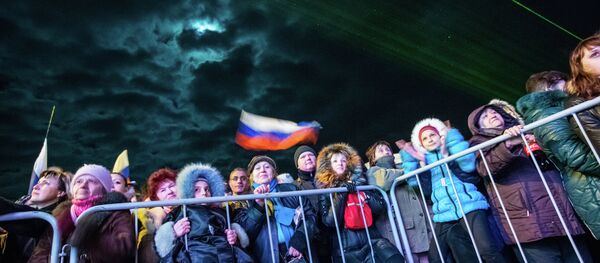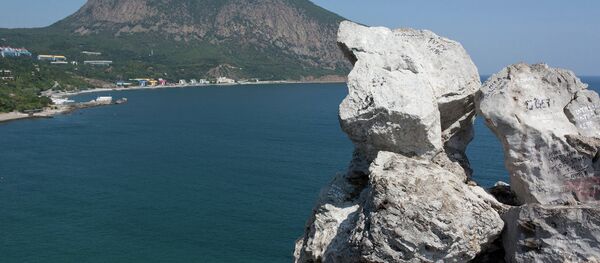MOSCOW (Sputnik), Daria Chernyshova — The West will not recognize Crimea’s reunification with Russia unless elites in the European Union and the United States are replaced, as the existing leaders seek Russia’s unconditional surrender, experts told Sputnik news agency Monday.
March 16 marks the first anniversary of Crimea’s referendum which saw the overwhelming majority of its residents vote for reunification with Russia, a move which the West deems illegal.
Former State Secretary in the German Ministry of Defense Willy Wimmer noted that Russia has been under attack since the predominantly Russian-speaking peninsula rejoined Russia in March 2014.
Wimmer said the West uses “all political and economic means to achieve one objective: unconditional surrender in Moscow to get in control of the enormous Russian natural resources.”
CRIMEA BETTER OFF IN RUSSIA
The reunification of Crimea with Russia has benefited the population of the Black Sea peninsula, Jon Hellevig told Sputnik outlining three major aspects.
Overall living standards have also improved, as Moscow began Crimea’s integration process with significant investment, while the Ukrainian economy is falling apart.
In terms of security, Hellevig noted that reunification with Russia ensured the safety of the Crimean population from the “nationalist terror spreading to Crimea in the wake of the violent coup in Kiev.”
CRIMEA’S REUNIFICATION PREVENTED WAR
Willy Wimmer, who also served as vice chairman of the parliamentary assembly of the Organization for Security and Co-operation in Europe (OSCE) told Sputnik that Russia’s decision on Crimean reunification prevented a potential regional, or probably a nuclear war.
“Due to the enormous strategic importance of the Crimea and the actual challenge for world peace, it had been a reaction of enormous importance, not to allow the Crimea to be the trigger of a European and even nuclear war,” Wimmer said.
Wimmer said that if it had not reunified with Russia, Crimea would have been under US control, as the origin of the whole crisis in Ukraine is the West’s efforts “to organize a spearhead in a political, economic and military sense against a peaceful neighbor and a reliable economical partner of us, the Russian Federation.”
The West considers Crimea’s referendum in which the overwhelming majority opted for the peninsula to join Russia, as an “illegal annexation” and imposed several rounds of sanctions on Russia. Moscow has also been accused of reviving its imperial ambitions, which most recently prompted European Commission President Jean-Claude Juncker to suggest creating a European army.



